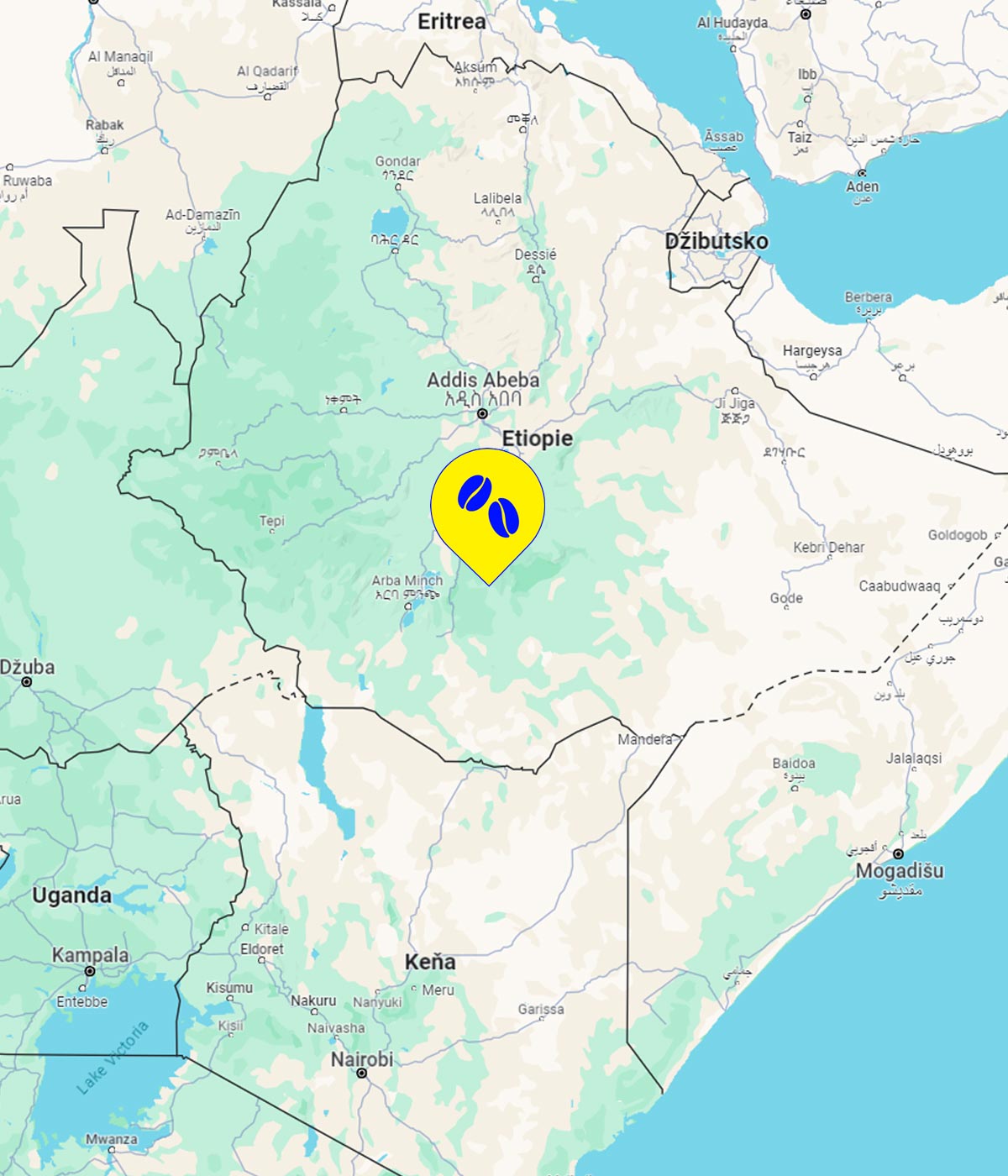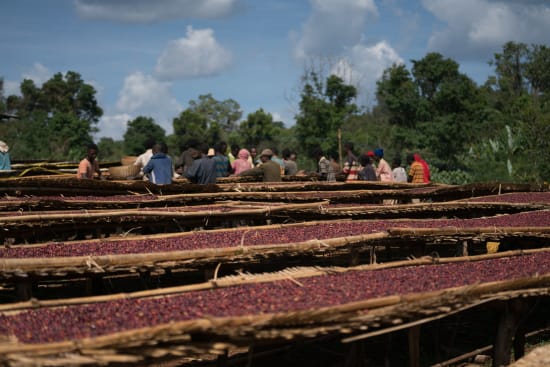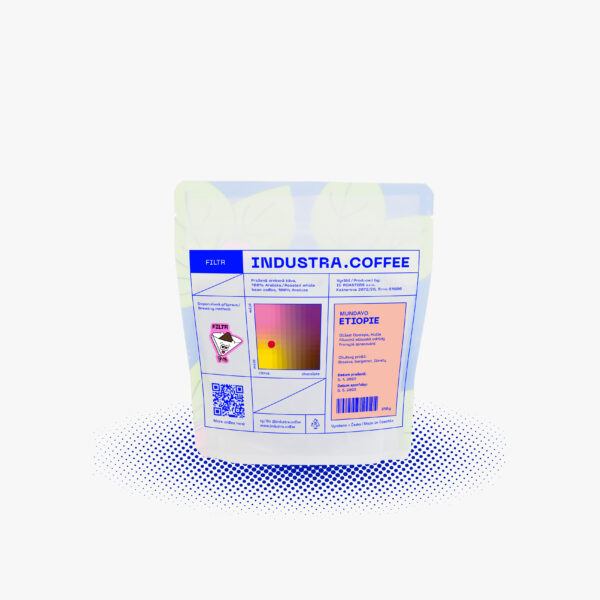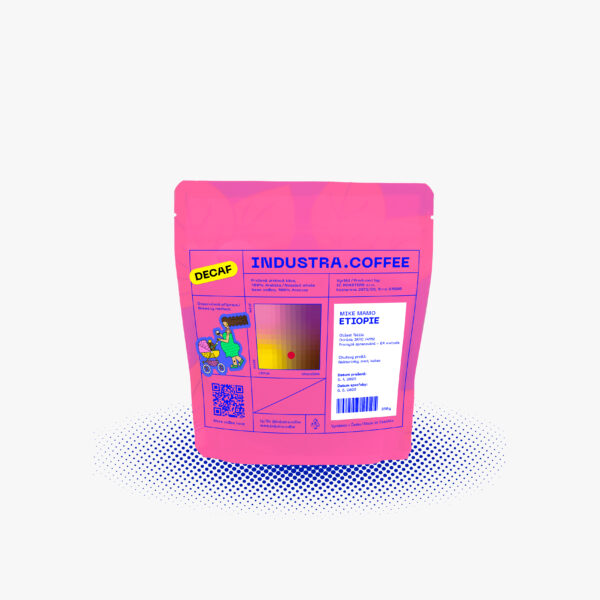ETHIOPIABOMBE

14,35 € – 52,89 €

| Country of origin | Etiopie |
|---|---|
| Farm | Sidama |
| Cultivar | Native Ethiopian varieties |
| Processing | natural |
| Flavor profile | Peach, blackberry, cocoa |
| Type of coffee | 100%arabica, specialty coffee, coffee beans |
| Manufacturer | IC ROASTERS s.r.o., Kainarova 2672/26, 61600, Brno, CZ |
Amount of coffee:
9 g single, 18 g double
Temperature:
94,5 °C
Weight of final drink:
20 g single, 40 g double
Extraction time:
30 seconds
About this coffee
Testi Ayla Washing Station was founded in 2010 and became part of the Testi group in 2016. It now serves about 375 smallholder farmers in the village of Bombe in Sidama, near the Bombe Mountain. Producers here own an average of 2.5 hectares and grow varieties such as Mikicho and Setami, which are local coffees.Coffees in Ethiopia are typically grown on very small plots of land by farmers who also grow other crops. The majority of smallholders will deliver their coffee in cherry to a nearby washing station or central processing unit, where their coffee will be sorted, weighed, and paid for or given a receipt. Coffee is then processed, usually washed or natural, by the washing station and dried on raised beds.The washing stations serve as many as several hundred to sometimes a thousand or more producers, who deliver cherry throughout the harvest season: The blending of these cherries into day lots makes it virtually impossible under normal circumstances to know precisely whose coffee winds up in which bags on what day, making traceability to the producer difficult. We do, however, make every available effort to source coffee from the same washing stations every year, through our export partners and their connections with mills and washing stations.
The Sidama region is known for producing the most coffee at the highest grades in Ethiopia, and the geography explains why this is. This region spreads across fertile highlands, where half of the land is cultivated. The surrounding rivers and lakes along with the very high elevation results in cool weather and fertile soil. These factors, in combination with over 100 inches of rainfall per year, cause the coffee to ripen slower than in any other region in Ethiopia.

We wanted to make it as easy as possible for you to choose your coffee, so we worked with the guys from Steezy Graphic Studio to come up with a “grid” – a simple grid where you can easily find the characteristics of each coffee.
The red dot next to the description of each coffee is placed exactly there, so that you can easily imagine how the coffee will taste.
Citrus – chocolate
Here we’d like to give you an idea of how fruity the coffee will be. There’s a long way from citrus to chocolate, so imagine more in between:
citrus, berries, green apples, red apples, stone fruits, dried fruits, nuts, milk chocolate and dark chocolate 😉
Mild – wild
What is mild coffee? We’d say it’s unpretentious. A coffee that you can just have every morning and not have to think too much about it. It’s just good.
The higher the dot, the more excitement you can expect in the taste of coffee. The more surprising and fun it can be. These coffees are fruity, fun, interesting and make you think about what it is that you actually enjoy about them so much.






 try our coffee at home or in our café
try our coffee at home or in our café